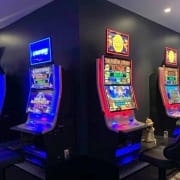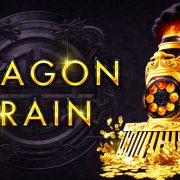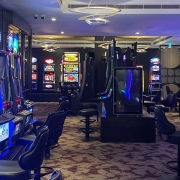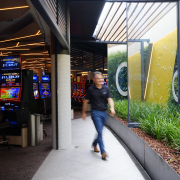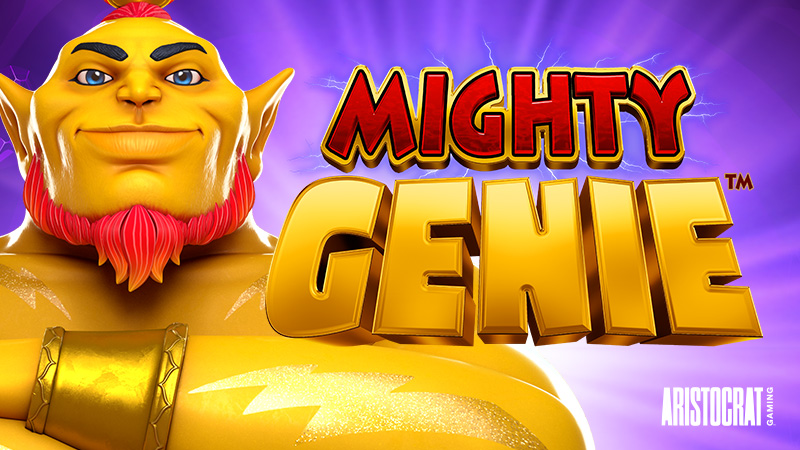GAMING INDUSTRY ICON LEN AINSWORTH TURNS 100
Len Ainsworth started Aristocrat 70 years ago at the age of 30 while he was working at his father’s dental equipment manufacturing business. In 1953 he started manufacturing poker machines from that factory in Rosebery and founded Aristocrat Leisure Industries, which has since become one of the world’s largest gaming companies.
In 1953 poker machines were still illegal in NSW but authorities ignored their use in returned servicemen’s clubs in the post war era and Mr Ainsworth built machines to sell into these venues, establishing Aristocrat as well-known local brand name.
A few years later Aristocrat expanded into the UK market with Jack Brabham working as Mr Ainsworth’s first UK sales rep, resigning in 1959, the year he won his first Formula One title.
In 1959 Mr Ainsworth made his first trip to sell poker machines to the USA.
Under his leadership, the company continued to grow until the 1994 when Ainsworth decided to split his shareholding in the private company among his family, installing a professional management team, and listing Aristocrat on the stock exchange in 1996. Gaining a licence in Nevada at that time saw the company continue to expand.
After leaving the day to day running of Aristocrat, Mr Ainsworth opened a new company in competition to them, Ainsworth Game Technology, in the late 1990s building it up and selling it off to international gaming company Novomatic in 2016.
At the Aristocrat manufacturing plant in Rosebery, sheet metal would come in one end of the factory and a poker machine out the other, so it was a large manufacturing plant with thousands of employees. Every part of the machine was made in the factory from the looms (wiring), I/F boards, buttons, artwork panels, even powder coated paint for the machine cabinets, and gold baths to produce special-order gold machine doors.
Mr Ainsworth was the first person in the office every day and when the factory opened at 7am he would walk through and talk with every staff member, asking after their family members by name and finding out what they were working on. If there was a better way to do something he would adjust the manufacturing process. His eye for detail, his work ethic and acknowledgement of the efforts of his employees, played a great part in his success.
Many of us, who worked for Mr Ainsworth (yes, we still call him Mr Ainsworth), would find him sitting behind his desk surrounded by a mountain of paperwork. You never knew if he was in his office until you were halfway across the room. Importantly, his door was always open – and that was the company policy for everyone who worked there.
Unknown to many, Mr Ainsworth also established the Ainsworth Foundation and has made large donations to education, medicine, and the arts. He has given $10m to the University of NSW to fund a new engineering building and was a major donor for the Art Gallery of NSW’s Sydney Modern Project, expanding the old building to house a larger collection and exhibitions. There is an Ainsworth wing at the Sydney Childrens Hospital and an Ainsworth building at the University of Western Sydney and he has backed many medical research institutes at the University of Sydney.
When asked recently by a journalist for a story in the Weekend Australian how he feels about people who criticise his connection to gambling, he still proved he had fire in his belly: “I feel that the people who criticise me are mainly people who are narrow-minded bigoted bastards…. they need to get on with their own lives and not interfere with others”.
Mr Ainsworth is a true icon globally and our industry would not be what it is without his vision and innovation. He has certainly crammed a lot into his 100 years.
We wish him well on his 100th birthday and many more to come!
A message board has been created for all those wishing to congratulate him on this milestone.
Justine Channing
Editor – The Drop


